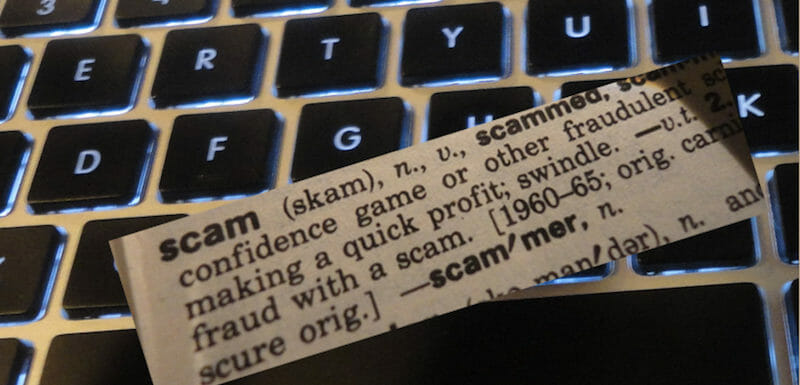Social Security scams—the new wave
The Inspector General has warned consumers to beware of robocalls from the main Social Security number. This warning comes in response to an increase in Social Security scams. Thanks to technological advances, scammers are now able to trick CallerID into displaying almost any number they choose. Is it any wonder the bad guys have chosen the number for an organization millions of older Americans rely on to do their worst? Welcome to the new Social Security scam.
CallerID Spoofing
For many years, telephone scams became less common because they weren’t cost-effective for scammers. But thanks to advances in technology, scammers use CallerID spoofing and a robodialer to make calls for very little money.
You may be familiar with those fake ‘local numbers’. In our case, our cell phones use a 208 prefix. We receive calls from other 208 numbers regularly, but have learned the calls are really a robocall and a phishing attempt.
Just like those calls that appear to be coming from a local number, scammers have zeroed in on the Social Security Administration. This is a real problem for consumers. The SSA has always been a trusted organization. Now, the scammers are leveraging that reputation to trick consumers.
Request for personal information
According to the Social Security Administration announcement, “People who have accepted the calls said the caller identifies as an SSA employee. In some cases, the caller states that SSA does not have all of the person’s personal information, such as their Social Security number (SSN), on file. Other callers claim SSA needs additional information so the agency can increase the person’s benefit payment, or that SSA will terminate the person’s benefits if they do not confirm their information. This appears to be a widespread issue, as reports have come from citizens across the country.”
How to avoid Social Security scams
Tip #1: Never answer a call from a number you don’t recognize. Personally, unless I have a pressing reason, I never answer the phone unless the number is already in my address book.
Tip #2: You should still be cautious about answering even if the caller is in your address book. Why? Your phone will display the contact information for any number in the address book, even if the CallerID is being faked.
Tip #3: Never give out personal information on the phone unless you know exactly who you’re dealing with. That means getting numbers for companies from their websites, not from materials they send you.
The only way to avoid these scams is to be vigilant. Why not leave a comment to let me know if you found this tip helpful? I’d love to hear from you.

YOUR SCAM ALERTS ARE VERY HELP FULL AND I ALWAYS READ THEM AND ARE A GOOD REMINDER.
Thanks Jean! I’m happy you like them. 🙂
This was a really great article. I receive numerous calls throughout the day, and each time it shows as a local number, but I have a CallerID that displays originating calls at the top. That’s my cue these are fake calls being made to get information or dupe me into giving donations. If they don’t leave a message on my answering machine I simply ‘block’ that number. Thus far I have over 65 such calls blocked. I have the Panasonic model, and love this feature.
I got such a call Thursday morning. The caller ID said “City of Lebanon” so I answered thinking it was Dial-A-Bus. After I realized it was not. I hung up. If I had looked at the phone number as well I would have known better. So it pays to check the phone number along with the ‘name’. 45 minutes later I got a call from, supposedly, the local medical clinic we attend. It was the same type of call. But a man instead of a woman. Last week. For three days in a row I got calls. Starting at 6:15 AM. Every 45 minutes for the whole day. Until 8:47 PM. It was because of that type of situation a year or so ago that caused me to pony-up for an answering machine. Now I rarely answer the phone. And last week it was off completely Because of those every 45 minute calls
Thanks for sharing your experience, Della. Your story is a good lesson that this type of scam is becoming widespread. I’m glad you figured out the one call was a scam after you answered!